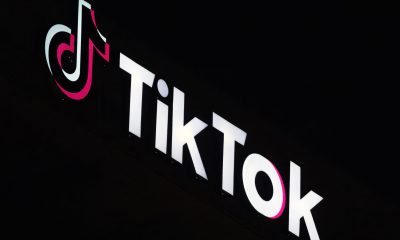Education
In a twist, Georgia now says districts can use state funds to teach AP Black Studies classes.
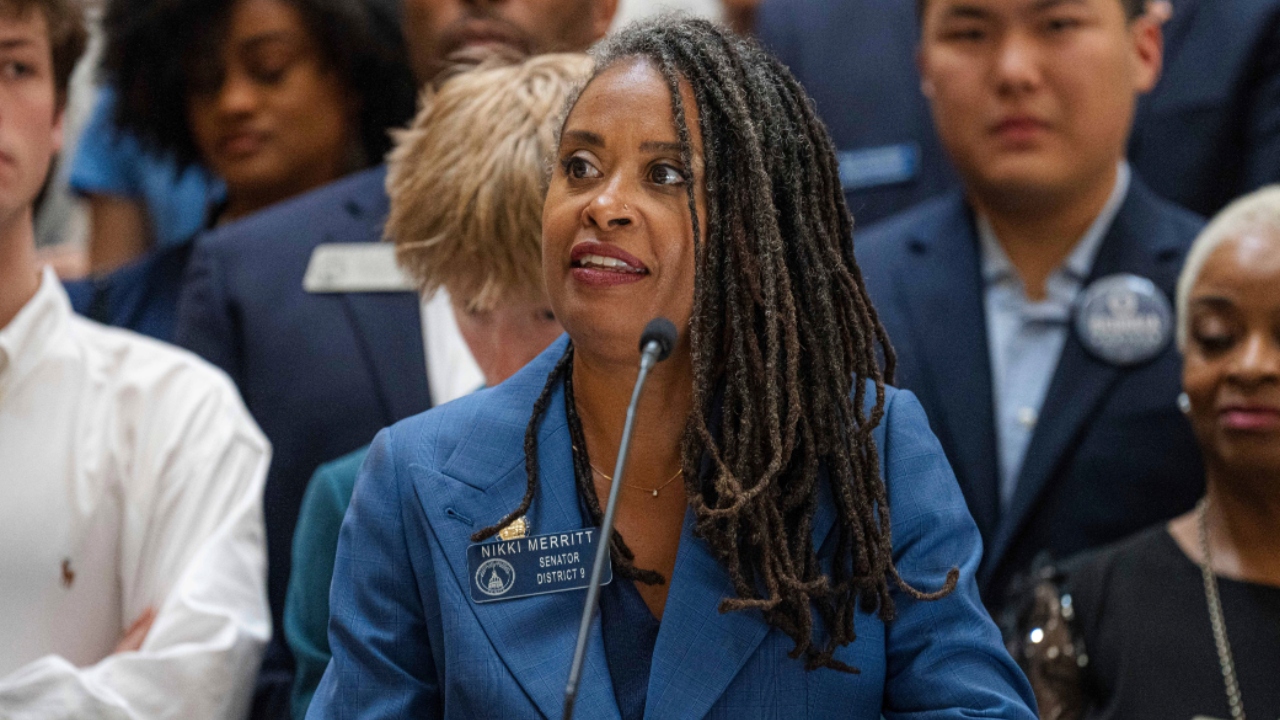
ATLANTA (AP) — Georgia State Superintendent Richard Woods said Wednesday that the state pays districts to teach a recent Advanced Placement course in African-American studies. A day earlier, he said districts could only teach the course using local funds.
Amid growing outrage, the Georgia Department of Education said districts have the liberty to offer the course and the state pays for it so long as the districts use a code related to an existing, state-approved African-American studies course.
“Districts may choose to use this course code and teach some or all of the standards from an AP course, and students may take the associated AP exam,” Meghan Frick, a state department spokeswoman, wrote in response to questions from The Associated Press.
The change did little to stem the backlash against Woods’ earlier refusal. At a rally on the Georgia Capitol on Wednesday, 15 mostly Democratic speakers attacked the elected Republican, saying he was trying to prevent students from learning about Georgia history.
“We are gathered here today in solidarity, standing strong with our students and teachers who have been blindsided by the sudden and unfair decision to remove AP African American Studies reports from our curriculum,” said state Sen. Nikki Merritt, a Democrat from suburban Lawrenceville. “This decision deprives our students of a vital opportunity to engage with and understand a significant part of our shared history.”
Woods also had to answer pointed questions from Republican Gov. Brian Kemp, who sent a letter asking why and the way Woods made his initial decision to block state funding. In that letter, Kemp described himself as a “long-time believer that families should ultimately make decisions that best serve the educational needs and future of their children.”
“As you know, the well-being of Georgia children and their educational opportunities are my top priority,” wrote Kemp, who’s currently in Italy on an economic recruiting trip.
Woods didn’t elaborate on his refusal, only saying in a statement Wednesday that he “had concerns about the state’s support for the entire course.”
Stan DeJarnett, chairman of the state board of education, said in a statement that “no one is prohibiting any school system in Georgia from offering this course if they choose to do so,” reflecting the department’s current position that districts can use state funds even when the state doesn’t list the course in its catalog.
All other Advanced Placement courses are listed within the state course catalog, Frick explained.
Featured Stories
Supporters of the course pushed back against the state’s recent position Wednesday, saying Georgia’s initial refusal to recognize the course was discriminatory.
“It’s not fair to suggest that the course is somehow inferior,” said state Rep. Jasmine Clark, a Democrat from suburban Lilburn.
The College Board, a nonprofit testing organization, offers Advanced Placement courses across the tutorial spectrum, including math, science, social studies, foreign languages, and the humanities. The courses are optional and taught at the school level. Students who rating well on the ultimate exam can often earn college credit.
Sara Sympson, a spokeswoman for the College Board, said 33 Georgia schools have piloted the African American Studies course for the 2023-2024 academic yr. Many schools had assumed they might offer the ultimate version of the course this yr.
But Advanced Placement got here under national scrutiny in 2023 when Florida Republican Gov. Ron DeSantis, gearing up for the presidential election campaign, said he would ban the course in his state since it promoted a political agenda. In June, South Carolina officials also declined to add the course to a list of approved courses. South Carolina said individual counties could still select to offer the course.
In Arkansas, state officials said the course would count toward credit within the upcoming school yr. They refused to achieve this last yr, but six schools piloted the course anyway.
Some school districts across the country have also refused to offer the course.
In 2022, Georgia lawmakers passed a law banning the teaching of divisive racial concepts in schools, prohibiting claims that the United States is “fundamentally or systemically racist” and mandating that no student “shall experience discomfort, guilt, anguish, or any other form of mental distress because of his or her race.”
So far, 18 states have passed such bans. It’s unclear whether Georgia’s law influenced Woods’ decision.
Some districts have pledged to hold classes even when the state doesn’t pay for them. The Atlanta district made the pledge Tuesday. The larger DeKalb County school district, which has told students and teachers it has canceled classes, said Wednesday it is going to hold the course at 4 of its high schools. Michael Thurmond, DeKalb County’s chief executive officer, pledged $100,000 to cover the prices.
Gwinnett County spokesman Bernard Watson said the situation is “evolving.” While the county, the state’s largest, has not reversed its decision to cancel classes at six high schools, Watson said Gwinnett County is working with state officials “to explore options for this course.”
Education
Literacy materials being withdrawn from many schools are facing new pressure from parents of children with reading difficulties

A lawsuit filed by two Massachusetts families deepens opposition to an approach to teaching reading that some schools proceed to make use of despite evidence that it will not be probably the most effective.
States across the country were modernization of reading programs for research-based strategies, generally known as “learning to read”, including an emphasis on sounding out words.
This week’s lawsuit takes aim at an approach that does not try this emphasize phonics. These include the time-tested “three clues” strategy, which inspires students to make use of images and context to predict words by asking questions comparable to: “What happens next?”, “What is the first letter of the word? ” or “What clues do the photos give?”
The families of the Massachusetts students who did this it was hard to read filed a lawsuit against authors and publishers who supported this approach, including Lucy Calkins, a lecturer at Teachers College at Columbia University. He is demanding compensation for the families allegedly harmed by the fabric.
Thousands of schools once used the three-signal approach as part of the “balanced literacy” approach advocated by Calkins and others, which focused, for instance, on having children read books they liked independently and spend less time on phonics or letter relationships and sounds. Over the past few years, greater than 40 states have passed laws emphasizing evidence-based and research-based materials, in keeping with the nonprofit Albert Shanker Institute.
It’s unknown how many school districts still use the programs at issue since the numbers aren’t monitored — but there are many, in keeping with Timothy Shanahan, professor emeritus of education on the University of Illinois at Chicago. Many teachers have been trained to show the three-pointer, so it could actually be used even in classrooms where it will not be part of the curriculum, he said.
He said research does show the advantages of teaching phonics, but there may be less information in regards to the three-cue method.
“There is no research that isolates the practice of teaching three-pointers – so we don’t know if it helps, hurts, or is just a waste of time (although logically it would seem to conflict with phonics, which may or may not be the case when teaching children),” he wrote in an email.
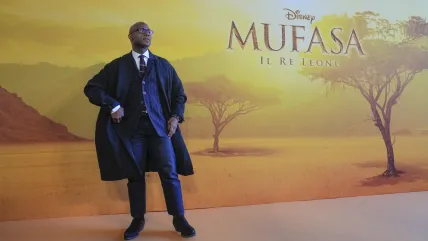
A key part of the sport is the tricue Reading the recovery programwhich was utilized in over 2,400 US elementary schools. In 2023, the Reading Recovery Council of North America filed a lawsuit alleging that Ohio lawmakers violated the authority of state and native boards of education through the use of a budget bill banning the three-pointer.
The new lawsuit accuses Calkins and other outstanding figures in the sphere of childhood literacy of using fraud to trick schools into purchasing and using flawed methods. The parents who sued alleged that their children had difficulty reading after studying in public schools in Massachusetts, where a 2023 Boston Globe study found that almost half of schools used materials that the state Department of Education deemed to be of low quality.
The lawsuit asks the court to order authors, their corporations and publishers to supply an early literacy program that features reading instruction for gratis.
One plaintiff, Michele Hudak of Ashland, said she thought her son was reading at an elementary level until fourth grade, when he had difficulty reading his assigned textbooks. By then, tests showed he was reading at an elementary level, the lawsuit said, “solely because he could successfully guess the words from the pictures.”
Calkins didn’t reply to an email looking for comment. It has maintained its approach, even adding more phonics to its literacy curricula, called units of study.
But last 12 months Teachers College announced it was closing the Reading and Writing Project, which Calkins founded, saying it desired to foster more conversation and collaboration between different approaches to literacy. Calkins has since founded the Reading and Writing Project in Mossflower to proceed her work.
“Teachers must use the best approach and differentiate their instruction depending on the specific child they are working with,” Calkins said in a video posted on the new project’s website.
Michael Kamil, professor emeritus of education at Stanford University, said that although Calkins dropped phonics, it is just one component of teaching children to read.
“There are lots of reasons why students don’t learn to read, and the reading program is very rarely the main reason,” Kamil said.

Education
Actor Michael Rainey Jr. donates $2.4 million to improve financial literacy in Staten Island schools

“Power Book II: Ghost” star Michael Rainey Jr. just made a significant move into power — starting this 12 months’s holidays early.
The 24-year-old actor has partnered with the Restoring America Through Recovery Education (RARE) Foundation to donate $2.4 million in financial literacy tools and support to three high schools in Staten Island, New York.
“A huge THANK YOU to (Michael Rainey Jr.) for sponsoring Port Richmond High School and providing each student and their parents with the necessary education in financial literacy and Equifax identity theft protection! Your commitment to empowering the next generation is truly inspiring,” RARE officials captioned the post on the web site Instagram.

The post included a video from the day Rainey visited Port Richmond High School to present the organization with an enormous check. There, he spoke candidly about his financial literacy journey and posed for photos with students. School officials and community organizers were also available to talk to students about financial literacy.
“Together with the support of the RARE Foundation Board of Directors, this is the first step in our mission to ensure that every student in New York is financially prepared for adulthood,” the post continued. “This is just the beginning – there are many more schools to come! Let’s make financial literacy a priority for every student!”
According to the organization’s website, the RARE Foundation strives to provide disadvantaged communities with “essential financial recovery education and training.” By partnering with RARE, Rainey hopes to further empower disadvantaged and at-risk youth with sage advice in order that they can confidently navigate their financial future, local radio station HOT 97 reported.
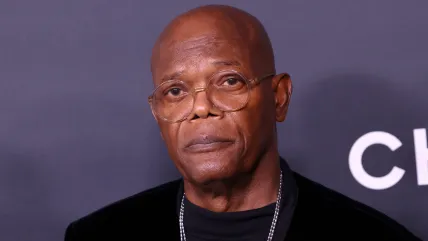
Rainey is from Louisville, Kentucky, and “Power Book II: Ghost,” a derivative of fifty Cent’s “Power” TV series, is ready in the five boroughs of New York City. In the spirit of the season, this wasn’t the one charity event Rainey took part in on Staten Island in recent days. According to videos uploaded to his Instagram Storiesthe actor also appeared on the Staten Island Turkey Drive, where he greeted guests and handed out T-shirts.
Education
VSU is the first HBCU with an accredited social work program
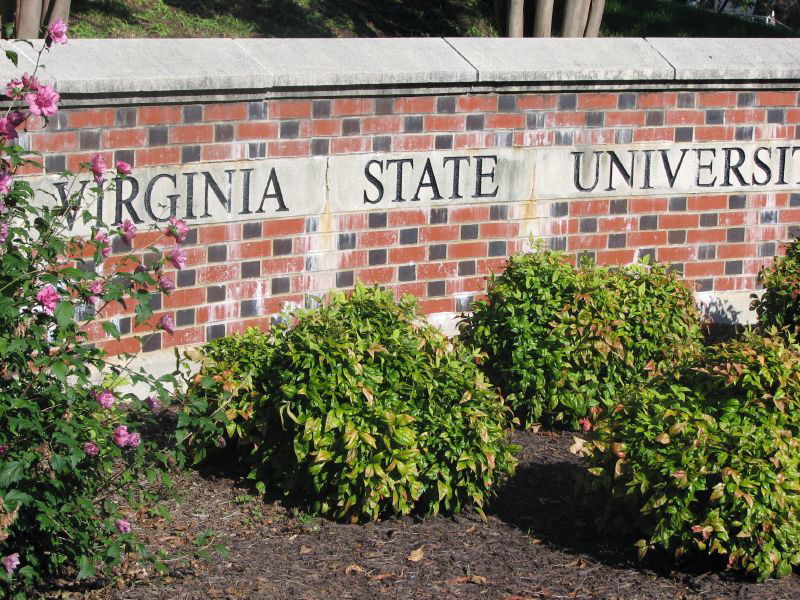
Virginia State University (VSU) is making HBCU history with a brand new accredited program.
Virginia State University distinguishes itself from other Historically Black Colleges and Universities (HBCUs) by adding a Master of Social Work degree program. The advanced degree program will likely be the first of its kind accredited by the Council on Social Work (CWSE) to be offered at an HBCU.
The university announced the accreditation of the program on November 21 on the university’s official website. The program has been operating since 2022, but only now has it received full accreditation. CWSE grants accreditation retroactively, covering previous semesters through fall 2022.
With the addition of the program, VSU’s mission is to teach culturally and socially competent mental health experts to assist support and lift up your communities.
“Preparing graduates to systematically and strategically address the well-being of people who have experienced trauma. It is also committed to promoting human rights and social and economic justice through community engagement, advocacy and collaborative research that influences professional practice at the local, national and global levels,” the press release reads.
VSU is not the only HBCU that has found success in academia. BLACK ENTERPRISES it was recently reported that Jackson State University is the first HBCU to win the Founder’s Award from the National Academy of Inventors (NAI).
NAI was founded in 2011 and has welcomed over 700 fellows. The organization promotes and honors creativity, diversity and invention. To join this prestigious organization, a scientist must hold no less than one U.S. patent.
JSU is a founding member of the organization and boasts many successful innovators who’ve change into NAI scholarship recipients.
Introduced in 2012, Ernest Izevbigie obtained two patents that led to the creation of EdoBotanics. The dietary complement helps cancer patients cope with the unwanted effects of chemotherapy and radiotherapy. Other inductees included Kamal Ali ’17 and Danuta Leszczyńska ’18.
JSU President Marcus Thompson accepted the honor: “This distinction further underscores our commitment to academic excellence, economic development and social progress. This is a significant milestone not only for JSU, but for all HBCUs and the state of Mississippi.”
-

 Press Release9 months ago
Press Release9 months agoCEO of 360WiSE Launches Mentorship Program in Overtown Miami FL
-

 Press Release8 months ago
Press Release8 months agoU.S.-Africa Chamber of Commerce Appoints Robert Alexander of 360WiseMedia as Board Director
-

 Business and Finance7 months ago
Business and Finance7 months agoThe Importance of Owning Your Distribution Media Platform
-

 Business and Finance9 months ago
Business and Finance9 months ago360Wise Media and McDonald’s NY Tri-State Owner Operators Celebrate Success of “Faces of Black History” Campaign with Over 2 Million Event Visits
-

 Ben Crump8 months ago
Ben Crump8 months agoAnother lawsuit accuses Google of bias against Black minority employees
-

 Theater9 months ago
Theater9 months agoTelling the story of the Apollo Theater
-

 Ben Crump9 months ago
Ben Crump9 months agoHenrietta Lacks’ family members reach an agreement after her cells undergo advanced medical tests
-

 Ben Crump9 months ago
Ben Crump9 months agoThe families of George Floyd and Daunte Wright hold an emotional press conference in Minneapolis












